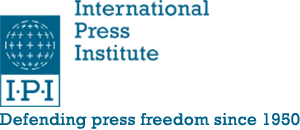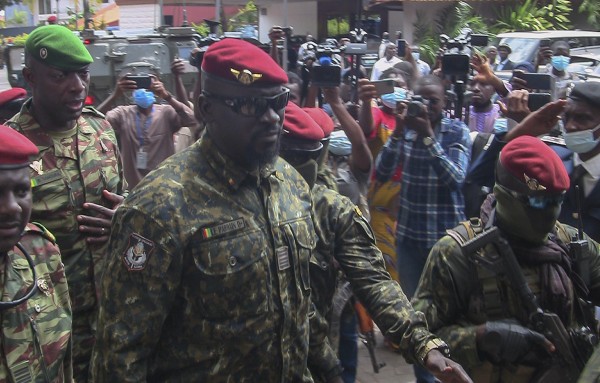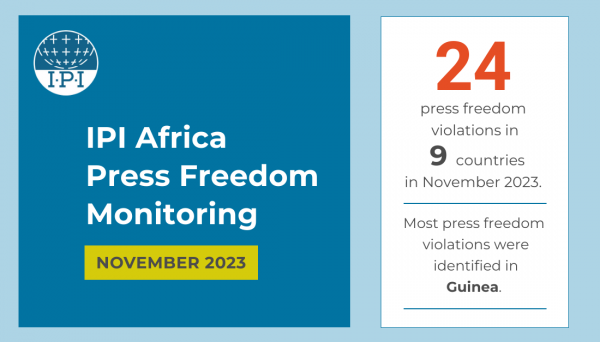The IPI global network calls on authorities in Guinea to release journalist Sekou Jamal Pendessa and drop all charges against him. The authorities in Guinea must also stop restricting access to online media, restore access to social media platforms, and ensure that press freedom is guaranteed under the transitional government.
Arrests and detentions of journalists
Pendessa, who also serves as the secretary general of the Union of the Press Professionals of Guinea (SPPG), was arrested and detained on January 19. He appeared before a court in Conakry on January 22, which charged him with “unlawful participation in public demonstration and attempt to public order” and ordered his continued detention.
The charges appear to be related to a rally that the SPPG organized on January 18 at the Press House in Conakry to protest restrictions on press freedom and internet access in the country. On that day, police encircled the Press House and arrested nine journalists who were later released.
These were not the only arrests of journalists in Guinea in January. On January 14, a French journalist, Thomas Dietrich, who was investigating an explosion at the state-run fuel company Société Nationale des Pétroles (SONAP) that killed 24 people, was arrested and deported.
Restrictions of social media, news outlets, and censorship
The recent arrests reflect a worsening environment for press freedom and civil and political rights more broadly in Guinea following the September 2021 coup d’etat. The military regime imposed a ban on public protest and dissolved a pro-democracy coalition of political parties and civil society organizations. IPI monitoring has documented a series of attacks on press freedom, including arrests of journalists and restrictions and sanctions on media by state actors, including security forces, government officials, and the media regulatory body.
For example, in May 2023, several media outlets faced restrictions or jamming of broadcasting programs. Authorities also disrupted access to major social media platforms ahead of a planned anti-government public protest.
IPI’s monthly monitoring in November 2023 identified Guinea as one of the countries in Africa with the highest number of press freedom threats and violations. IPI monitoring also documented cases of censorship imposed on critical media outlets in December 2023 by the state media regulatory body. Similarly, in January, the media regulatory body suspended the online news outlet DépêcheGuinée for nine months over the publication of an article on embezzled public funds blocked in a bank in Dubai. Abdoul Latif Diallo, DépêcheGuinée’s editor-in-chief, was also suspended for six months by the media regulator.
“The increase in incidents of attacks and threats to press freedom in Guinea over the past several months is alarming”, IPI Advocacy and Partnerships Lead Nompilo Simanje said. “This arrest and imprisonment of a journalist and leader of the journalists’ union is a direct attack not only on Pendessa but on the entire media fraternity.”
She added: “These recent efforts to intimidate and silence journalists in Guinea risk limiting the media’s ability to hold the government accountable, expose corruption, and inform the public.”
IPI calls on the authorities in Guinea to halt these attacks on press freedom and allow independent and critical media to play their role, which fosters a healthy democracy by contributing to public debate and citizen participation ahead of the next democratic elections.


